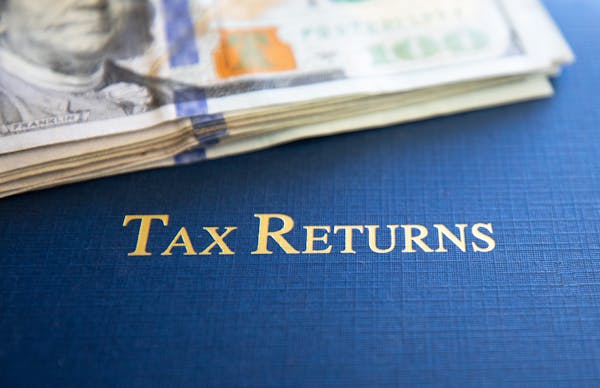Navigating the Canadian tax system can be complex, especially when considering the variety of tax returns that individuals and businesses may need to file. Understanding these different types of tax returns is crucial for ensuring your compliance with Canadian tax laws, however, and for making informed financial decisions.
What Is a Tax Return?
Tax returns are annual, quarterly, or monthly forms used for tax compliance and payment. A tax return is a form or form through which income, and any tax deductions and credits, are reported to the Canadian Revenue Agency. When you file your tax return, you can either receive a refund or an amount will be payable to the CRA.
A tax return is a form, or series of forms, and schedules that a Canadian must fill out (either via paper copy or digitally) each year to inform the Canada Revenue Agency (CRA) about how much money they received from all eligible sources of income during the year.
The Canadian tax filing system is a system of self-assessment. That means it’s your responsibility as the taxpayer to file your own tax return and abide by tax laws and rules. Even if you decide to hire a professional accountant or use a tool to file your own tax return, it’s still a good idea to have a basic understanding of tax returns, to ensure you aren’t overlooking any potential tax savings.
What are the Different Types of Tax Returns in Canada?
Each tax return has a different purpose as well as varying inputs to calculate your tax liability. At the core of this system is the principle that different financial situations and entities require distinct forms of reporting to accurately reflect their taxable activities. Whether it’s an individual reporting employment income, a corporation balancing its fiscal responsibilities, or a trust managing its beneficiaries’ allocations, each scenario demands a specific approach to tax filing.
This guide only provides general information; always consult a professional for actionable advice when filing tax returns in Canada to protect yourself from potential penalties or missed deductions.

Personal Income Tax Returns(T1)
In Canada, the Personal Income Tax Return, commonly known as the T1 General Tax Return, is the most common type of tax return and a critical document filed by individual taxpayers. The T1 General Tax Form is the primary document used to report personal income, claim tax refunds, and determine tax liability. This form neatly summarizes all the taxes you pay throughout the tax year, as well as your income (total, net, and taxable), deductions, non-refundable credits, and balance owing—or refund, if you’re lucky.
Your T1 is also used to apply for goods and services tax (GST) and the harmonized sales tax (HST) refundable tax credits, calculate the Canada Child Benefit, and more.
Tax deductions and credits are significant components of the T1 General Return. These include basic personal amounts, contributions to Registered Retirement Savings Plans (RRSPs), childcare expenses, and medical expenses, among others. These deductions and credits can significantly reduce an individual’s taxable income, thereby lowering their overall tax liability.
The filing deadline for most individuals is April 30th of the year following the tax year. For self-employed individuals, the deadline extends to June 15th, although any taxes owed must still be paid by April 30th to avoid interest charges.
Corporate Tax Returns (T2)
The corporate tax return in Canada, known as the T2 form, is a mandatory filing for all incorporated businesses operating in the country, regardless of size or income. The T2 corporation tax return is also called a "declaration of corporate income," which Canadian corporations must use to report a corporation's taxable income, tax owing, federal and provincial or territorial taxes, and other details to determine the final tax liability or refunds for the year.
The T2 return is mandated under the Canadian Income Tax Act for all corporations that are tax residents of Canada. This includes both public and private corporations as well as non-profit organizations.
The main purpose of the T2 return is for corporations to calculate their taxable income, claim deductions, report income tax payable, and transmit relevant financial documents. This ensures compliance with Canada's tax laws.
Corporations are required to file a T2 return every tax year, even if there is no tax payable. This includes non-profit organizations, tax-exempt corporations, and inactive corporations. The form requires detailed financial information, including total revenue, taxable income, and deductions. Deductions may include business expenses such as salaries, benefits, and operational costs.
The filing deadline for corporate tax returns is six months after the end of the corporation’s fiscal year. Late, inaccurate, or unfiled tax returns can result in penalties, making timely and accurate completion of the T2 form crucial for corporate compliance.
Goods and Services Tax/Harmonized Sales Tax Returns
Canadians are also taxed on the consumption of most consumer goods and services.
The federal government’s Goods and Services Tax (GST) and provincial governments’ Provincial Sales Tax (PST) are both applied to the majority of goods and services consumed in Canada.
Businesses in Canada that provide taxable supplies are required to file Goods and Services Tax (GST) and Harmonized Sales Tax (HST) returns. The GST/HST return is a critical tax filing used to report the amount of GST/HST collected from customers and paid to suppliers. This return is essential for businesses to comply with the federal tax regulations.
The filing frequency for GST/HST returns can be monthly, quarterly, or annually, depending on the business’s sales and its preferences. When filing the return, businesses can claim Input Tax Credits (ITCs) for the GST/HST paid on their business expenses, which can be deducted from the total GST/HST owed to the government. This mechanism ensures that businesses are taxed only on the value added to their supply chain.
The specific deadlines vary based on the chosen filing frequency, but adherence to these dates is imperative for maintaining good standing with the Canada Revenue Agency.
Payroll Tax Returns
Employers are required to remit payroll taxes on behalf of their employees. This includes deductions for income tax, Canada Pension Plan (CPP), and Employment Insurance (EI). Employers must file various forms and returns related to payroll taxes.
Trust Income Tax Returns(T3)
Trusts, including testamentary trusts, inter vivo trusts, and estate trusts, must file a T3 return to report income, deductions, and taxes payable. Trusts in Canada are obligated to file a T3 Trust Income Tax Return. This form is used by estates and trusts to declare income earned, such as interest, dividends, or capital gains. The T3 return is essential for allocating taxable income to beneficiaries or for paying tax at the trust level. Filing requirements for the T3 return depend on the type of trust and its income. The deadline for filing the T3 return is 90 days after the trust’s tax year-end.
Partnership Information Returns (T5013)
Partnerships are required to file a T5013 return to report their income, deductions, and allocations to partners. This form details the partnership’s income, losses, and other amounts, which are then allocated to the partners according to their share. The T5013 return provides transparency and ensures that each partner reports their share of the partnership’s income or losses on their personal or corporate tax returns. Timely and accurate filing of the T5013 is crucial for both the partnership and its partners to maintain compliance with the Canada Revenue Agency.
Excise Tax Returns
Businesses involved in certain industries, such as alcohol, tobacco, and fuel, may be required to file excise tax returns to report and remit excise taxes.
Non-Resident Tax Returns
Non-residents of Canada who earn income from Canadian sources may need to file tax returns to report this income and pay any applicable taxes.
Specialized Tax Returns
There are also specialized tax returns in Canada for specific situations. For example, the T5018 return is used to report payments made in the construction industry, while the T4A(P) form reports Canada Pension Plan benefits. Each of these specialized returns serves a unique purpose and is applicable in particular circumstances. Understanding when and how to file these specialized returns is essential for businesses and individuals in those specific sectors or situations to ensure compliance with Canadian tax laws. Always consult a professional tax accountant if you’re unsure about your tax obligations or if the CRA has contacted you regarding your return.
These are some of the main types of tax returns in Canada, but there may be others depending on specific circumstances, such as estate tax returns or returns related to certain tax credits or incentives. It's essential to consult with a tax professional or the Canada Revenue Agency (CRA) for guidance tailored to your situation.

Filing Tax Returns in Canada
If you need help completing and filing your return, meet with a tax professional at Filing Taxes. We take the time to listen and strategically analyze your complete financial picture to deliver tax planning that fits your life today and tomorrow. Our team will work with you to help you understand the solutions available to you and chart the best path forward. Don't let the practice of DIY Accounting become the culprit behind draining your business.
To learn more feel free to reach out to Filing Taxes at 416-479-8532. Schedule an NTR engagement appointment with us and take the first step toward proper management of your finances.
Disclaimer: The information provided on this page is intended to provide general information. The information does not consider your personal situation and is not intended to be used without consultation from accounting and financial professionals. Salman Rundhawa and Filing Taxes will not be held liable for any problems that arise from the usage of the information provided on this page.

